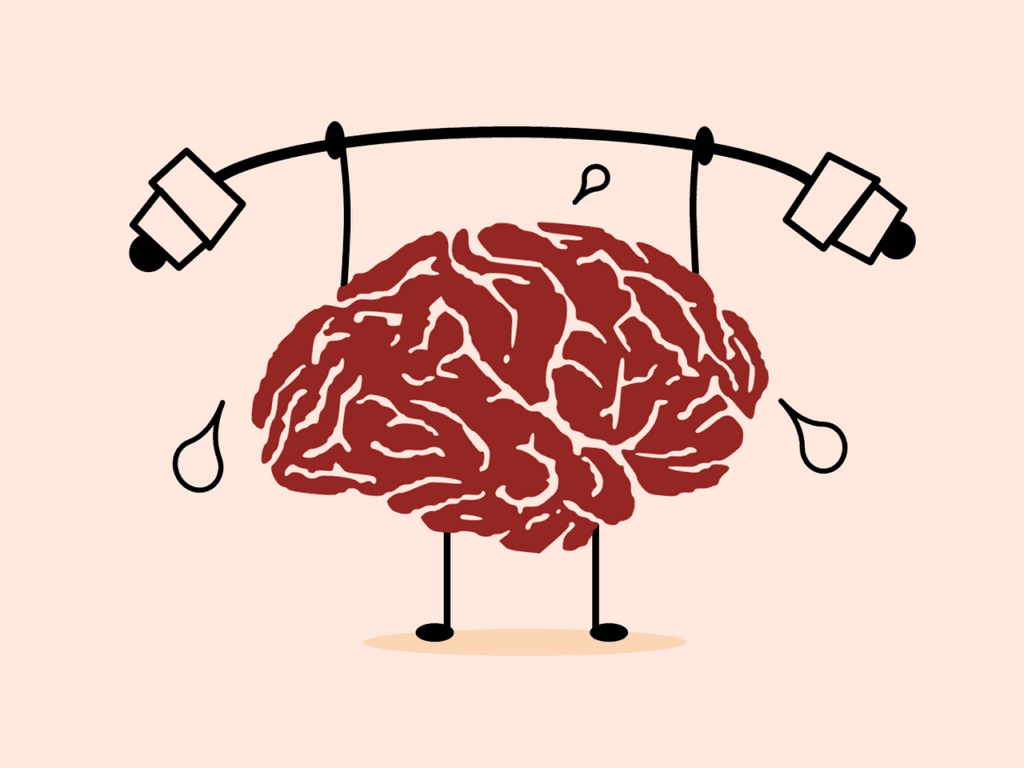How to Build Mental Toughness for Young Athletes – Mastering the Mind
Building mental toughness is a vital aspect of nurturing the full potential of young athletes. While physical strength and skill are crucial, the ability to overcome obstacles, handle pressure, and maintain focus can make all the difference between success and mediocrity in sports.
Mental toughness empowers young athletes to push their limits, bounce back from setbacks, and perform at their best even in challenging circumstances. In this article, we will explore actionable strategies and techniques to build mental toughness for young athletes. By incorporating these approaches into their training and daily lives, they can cultivate the mental resilience and strength needed to excel both on and off the field.
What is Mental Toughness?

Mental toughness is a psychological trait that enables young athletes to persevere, remain focused, and perform at their best under pressure and adversity. It encompasses a set of attitudes, beliefs, and coping mechanisms that contribute to an athlete’s ability to overcome challenges, setbacks, and obstacles.
At its core, mental toughness goes beyond physical capabilities. It involves the development of a resilient mindset and the capacity to stay determined, motivated, and composed in the face of difficulties. It is the ability to maintain a positive attitude, push through physical and mental barriers, and consistently perform at a high level.
Why is it Important?
In the world of sports, mental toughness is a critical attribute for young athletes. It empowers them to overcome challenges, handle pressure, and maintain consistent performance. It also allows them to manage the intense pressure and expectations that are inevitable in competitive sports. This eventually helps them stay focused and perform at their best when it matters most.
Furthermore, mental toughness extends beyond the realm of sports. A tough mindset will have a positive influence over other areas of life. Traits such as perseverance, discipline, and a growth mindset, have a profound impact on things such as academic success, personal relationships, and overall well-being.
Whether you’re a coach, parent, or athlete, it is important to prioritize mental training as much as you prioritize physical training. By doing so, young athletes can unlock their full potential, thrive in challenging situations, and achieve long-term success in their athletic pursuits.
Developing a Growth Mindset

One of the key elements in building mental toughness for young athletes is developing a growth mindset. A growth mindset is a belief that one’s abilities can be developed through dedication, effort, and perseverance. It is the understanding that skills can be improved with practice and that failures or setbacks are opportunities for learning and growth.
With a growth mindset, young athletes approach challenges with enthusiasm and embrace the process of improvement. They view obstacles as stepping stones to success rather than insurmountable barriers. Instead of being discouraged by failure, they see it as a chance to analyze their performance, identify areas for improvement, and make adjustments.
To cultivate a growth mindset, young athletes can be encouraged to set realistic and challenging goals. These goals should be specific, measurable, and attainable, providing a clear direction for their efforts. By setting incremental goals and tracking their progress, athletes develop a sense of purpose and motivation. They learn to value effort and perseverance, understanding that hard work is the key to growth and achievement.
Setting Goals and Creating a Plan
Setting goals and creating a plan of action are excellent ways to build mental focus among young athletes. Goals provide direction, motivation, and a sense of purpose for the young athletes. When goals are properly structured and aligned with their aspirations, they become powerful tools for growth and achievement.
Young athletes should be encouraged to set specific, measurable, attainable, relevant, and time-bound (SMART) goals. Specific goals help athletes define exactly what they want to achieve, such as improving a specific skill or reaching a performance milestone. Measurable goals allow athletes to track their progress and determine if they are moving closer to their desired outcome.
Likewise, attainable goals are challenging yet realistic, considering their current abilities and resources. Relevant goals are meaningful and aligned with their long-term aspirations. Time-bound goals have a specific timeline, creating a sense of urgency and accountability.
Creating a plan to achieve these goals is equally important. Young athletes should break down their goals into smaller, actionable steps. This enables them to focus on incremental progress and allows for better tracking of their performance. By creating a plan, athletes develop a structured approach, outlining the necessary actions, training routines, and resources required to accomplish their goals.
Building Resilience

Resilience is a crucial component of mental toughness for young athletes. It is the ability to bounce back from setbacks, adapt to changes, and maintain a positive mindset in the face of challenges. Developing resilience equips athletes with the mental strength needed to persevere, grow, and thrive in the competitive world of sports.
One key aspect of building resilience is reframing setbacks and failures as opportunities for growth. Rather than being discouraged by setbacks, resilient athletes view them as valuable learning experiences. They analyze what went wrong, identify areas for improvement, and use these insights to refine their skills and strategies. By adopting this mindset, young athletes become more resilient and are able to bounce back stronger than before.
Resilience also involves maintaining a positive attitude and a belief in one’s abilities. Instead of dwelling on negative thoughts or self-doubt, resilient athletes focus on their strengths and the progress they have made. They practice positive self-talk, reinforcing their confidence and fostering a resilient mindset.
Furthermore, building resilience requires developing effective coping mechanisms to manage stress and pressure. This can include relaxation techniques, deep breathing exercises, or mindfulness practices. By incorporating these strategies into their routine, young athletes can better regulate their emotions, stay calm under pressure, and perform at their best.
Managing Pressure and Stress
In the world of sports, managing pressure and stress is vital for young athletes to perform at their best. The competitive nature of sports, combined with high expectations from coaches, teammates, and even themselves, can create intense pressure and stress. Developing effective strategies to manage these challenges is crucial in building mental toughness.
One key aspect of managing pressure and stress is maintaining a balanced perspective. Young athletes should be encouraged to focus on the process rather than solely on outcomes. By shifting their attention to the present moment and the tasks at hand, athletes can reduce anxiety and perform with greater clarity and composure.
Practicing relaxation techniques such as deep breathing, visualization, or mindfulness can also help athletes manage pressure and stress. These techniques promote a sense of calmness, centering the mind and body, and reducing anxiety. Regularly incorporating these practices into their routine can enhance their ability to stay composed in high-pressure situations.
Developing Mental Skills

In addition to physical training, young athletes must focus on developing mental skills to enhance their overall performance and mental toughness. These mental skills provide a foundation for mental toughness, enabling athletes to stay focused, handle pressure, and overcome obstacles. By incorporating specific techniques and exercises into their training regimen, athletes can sharpen their mental acuity and maximize their potential.
One vital mental skill to develop is concentration. Athletes must learn to maintain unwavering focus and block out distractions during training and competitions. Techniques such as visualization, mindfulness, and pre-performance routines can help athletes cultivate a concentrated mindset, enhancing their ability to stay fully engaged and perform at their best.
Another crucial mental skill is goal setting. By setting clear and attainable goals, athletes establish a sense of direction and purpose. Goals provide motivation, guide training efforts, and serve as benchmarks for progress. Through effective goal setting, athletes learn to prioritize their efforts and channel their energy toward meaningful achievements.
Self-confidence is also a fundamental mental skill that contributes to mental toughness. Developing a positive self-image and belief in one’s abilities allows athletes to approach challenges with self-assurance. Strategies like positive self-talk, affirmations, and recalling past successes can bolster self-confidence and create a resilient mindset.
Embracing Challenges and Learning from Setbacks
In the journey of building mental toughness, young athletes must embrace challenges and learn from setbacks. Challenges and setbacks are not roadblocks but opportunities for growth and development. By adopting a positive mindset and embracing these experiences, athletes can cultivate resilience, enhance their skills, and strengthen their mental toughness.
Embracing challenges means willingly stepping out of your comfort zone and seeking opportunities to push boundaries. It involves embracing difficult training sessions, taking on formidable opponents, and actively seeking ways to improve. Rather than shying away from challenges, young athletes should view them as chances to test their limits, develop new skills, and discover their true potential.
Learning from setbacks is equally important. Setbacks are inevitable in any athletic pursuit, and how athletes respond to them determines their growth and mental toughness. Instead of dwelling on failures, athletes should analyze what went wrong, identify areas for improvement, and use setbacks as valuable learning experiences. By adopting a growth mindset and understanding that setbacks are stepping stones to success, athletes can bounce back stronger and more determined than before.
Moreover, setbacks provide an opportunity to develop problem-solving skills. Athletes can evaluate their strategies, techniques, and approaches, and make necessary adjustments. They can seek guidance from coaches, mentors, or sports psychologists to gain insights and develop new strategies for future success. Through this process, athletes develop the ability to adapt and find innovative solutions, enhancing their mental toughness and overall performance.
Building a Supportive Network

No athlete can achieve success alone. Seeking support and building a supportive network is essential for young athletes in their journey toward mental toughness. Having a strong support system not only provides encouragement but also offers guidance, perspective, and valuable resources to navigate challenges effectively.
Coaches play a significant role in providing support to young athletes. They offer expertise, mentorship, and motivation to help athletes develop their skills and mental toughness. Coaches can provide valuable feedback, set realistic expectations, and help athletes identify areas for improvement. Their guidance and belief in the athlete’s potential can instill confidence and foster mental resilience.
Teammates also form an integral part of a supportive network. Sharing experiences, challenges, and victories with like-minded individuals creates a sense of camaraderie and mutual support. Teammates understand the ups and downs of the athletic journey and can provide encouragement, motivation, and a support system during challenging times.
In addition to coaches and teammates, mentors and role models can offer valuable support. Mentors provide guidance, wisdom, and a source of inspiration for young athletes. They offer insights gained from their own experiences and can provide valuable advice on navigating challenges and building mental toughness.
Furthermore, seeking support from family and friends is crucial. The unwavering support, love, and encouragement from loved ones can significantly impact an athlete’s mental well-being and motivation. They can provide a safe space for athletes to express their feelings, offer a listening ear, and be a pillar of support throughout their athletic journey.
Conclusion
Building mental toughness is a transformative journey for young athletes. By developing mental skills, embracing challenges, managing pressure and stress, and seeking support, athletes can cultivate the resilience, focus, and determination necessary for success in their athletic endeavors.
Through the process of building mental toughness, athletes not only enhance their performance on the field but also acquire valuable life skills that extend beyond sports. They learn the importance of perseverance, adaptability, and maintaining a positive mindset in the face of adversity. With each challenge overcome and setback transformed into a learning opportunity, young athletes grow stronger, more confident, and better equipped to face future obstacles.
Ultimately, the development of mental toughness empowers young athletes to unleash their full potential, embrace their journey with passion, and thrive in both their athletic pursuits and personal lives. By harnessing the power of the mind, athletes can conquer their limitations and become champions not only in sports but also in the game of life.
Like what you’ve read? Check out our articles on how to get the most out of training sessions and the risks of overtraining in soccer.



